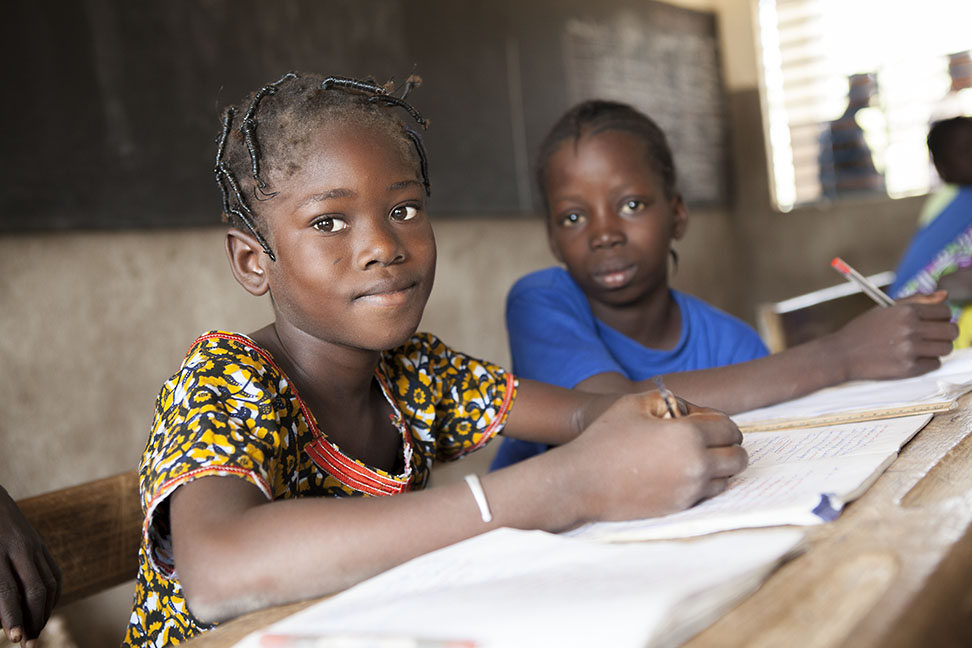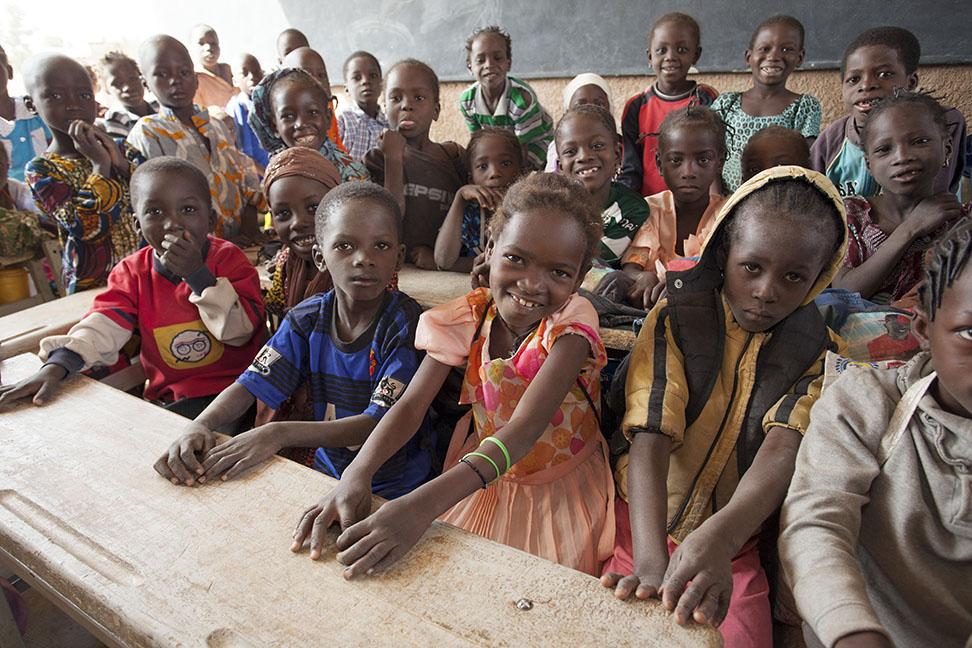
In many of MCC’s partner countries, economic growth is constrained by lack of access to and low quality of education. To help break down these barriers, MCC has worked with its partners to improve these sectors and to help them make progress toward achieving Millennium Development Goals 2 and 3: to ensure universal primary education and eliminate gender gaps in school.
MDGs 2 and 3 set ambitious targets for ensuring universal primary education and eliminating the gender gap in schools. Providing general education to children is fundamental to a country’s economic and social development. It is one of the most effective tools to reduce poverty, improve the status of women, strengthen family health, and enhance social stability. Improving education quality ensures students leave school with the skills necessary to become productive citizens. In many countries, however, education access remains a challenge, especially for girls.
Education yields strong economic and social benefits for girls and women. Consider this: providing girls one extra year of education beyond the average can boost eventual wages by up to 20 percent. Adolescence is a time of high risk and missed potential. The education of adolescent girls, especially post-primary, is a priority.
Since 2004, MCC has invested $454 million in nine countries in projects across the education spectrum—including primary education, vocational training, non-formal training, and graduate degree programs—to equip people with the knowledge and skills they need to obtain good jobs, establish their own businesses and increase their earning potential.
There are still millions of girls in rural areas around the world who aren’t able to go to primary school, but MCC has helped to significantly reduce that number in Burkina Faso, for example, providing thousands of children with the opportunity for a brighter future.

To address these gaps, encourage attendance and ensure that students are physically capable of learning and retaining their lessons, solutions such as school meals, take-home rations for girls, school kits, and textbooks were implemented. Parental and community interventions included adult literacy training for mothers, community information campaigns on the benefits of education, especially the education of girls, and community capacity building on the importance of sustaining educational assets.
Teachers also benefited through better school facilities including teacher housing, the recruitment of additional female teachers and gender sensitivity training. The project also built 264 private latrines, dug 10 boreholes and rehabilitated another seven boreholes to ensure all students have access to safe drinking water and are learning in an environment where they can practice good hygiene.

